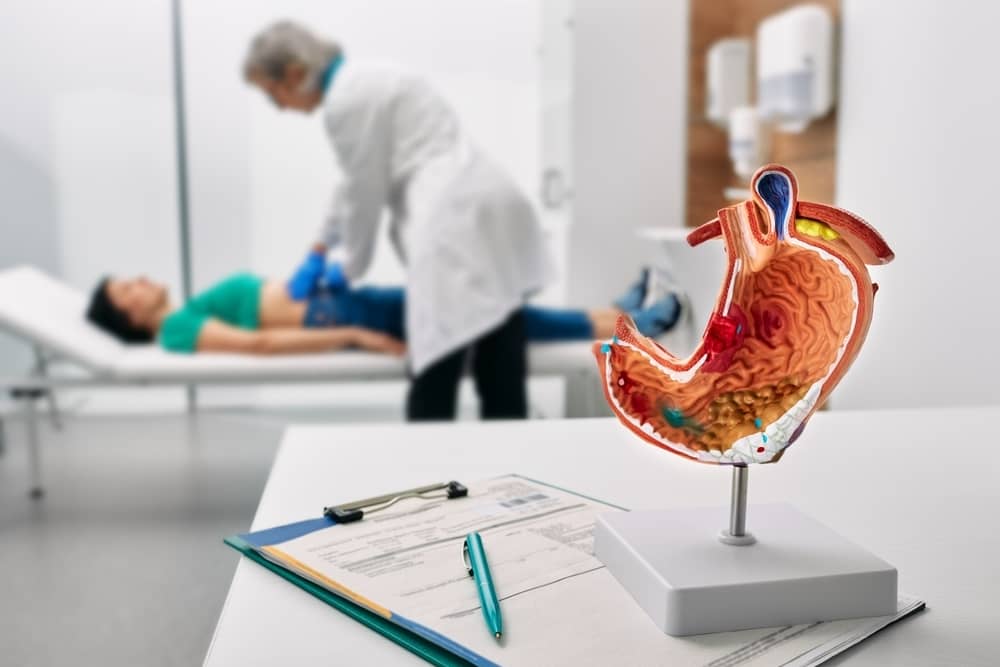5 Gastroenterology Melbourne Clinics With Over 20 Years Experience
Direct Endoscopy Gastroenterology Clinics have a team of expert gastroenterologists who focus on the digestive system, including the oesophagus, stomach, small intestine, large intestine, pancreas, liver, gallbladder, and bile ducts. Gastroenterologists are physicians who have completed extensive training in the diagnosis, treatment, and prevention of disorders of the digestive system.
What Is Gastroenterology?
Gastroenterology encompasses a broad range of conditions affecting the digestive tract, from common ailments such as heartburn and constipation to more complex diseases like inflammatory bowel disease and cancer. Gastroenterologists play a crucial role in evaluating, diagnosing, and managing these conditions, helping patients achieve optimal digestive health.
What does a Gastroenterology Doctor Do?
- Diagnosis: They carefully evaluate patients’ symptoms, and medical history, and perform diagnostic tests to arrive at an accurate diagnosis.
- Treatment: Gastroenterologists provide comprehensive treatment plans for a wide range of digestive disorders, including medication, dietary modifications, and endoscopic or surgical interventions.
- Prevention: They educate patients on preventive measures to reduce the risk of digestive issues, such as screening for colon cancer and advocating for healthy lifestyle choices.
Symptoms & Conditions Investigated Using Gastroenterology
A wide array of symptoms can prompt a visit to a gastroenterologist. These include:
- Abdominal pain, discomfort, or bloating
- Heartburn or acid reflux
- Difficulty swallowing
- Changes in bowel habits, such as diarrhoea, constipation, or blood in the stool
- Weight loss or gain without explanation
- Jaundice (yellowing of the skin and eyes)
- Fatigue or weakness
- Nausea or vomiting
- Liver pain or enlargement
Conditions Treated With Gastroenterology
Gastroenterologists treat a wide spectrum of digestive disorders, including:
- Inflammatory bowel disease (IBD): Crohn’s disease and ulcerative colitis are chronic inflammatory conditions of the digestive tract.
- Irritable bowel syndrome (IBS): A common functional disorder characterised by abdominal pain, bloating, and changes in bowel habits.
- Gastroesophageal reflux disease (GERD): A condition where stomach acid flows back into the oesophagus, causing heartburn and other symptoms.
- Peptic ulcers: Open sores on the lining of the stomach or duodenum.
- Coeliac disease: An autoimmune disorder that affects the small intestine and can cause digestive problems if gluten is consumed.
- Diverticular disease: Small pouches that form in the wall of the colon, which can sometimes bleed or become inflamed.
- Liver diseases: Hepatitis, cirrhosis, and fatty liver disease are examples of liver conditions that gastroenterologists manage.
- Pancreatic disorders: Pancreatitis, pancreatic cancer, and cystic fibrosis are among the pancreatic diseases treated by gastroenterologists.
Gastroenterology Procedures Melbourne
Gastroenterologists perform a variety of procedures to diagnose and treat digestive disorders. Some of the most common procedures include:
- Endoscopy: Used to visualise the inside of the digestive tract and diagnose or treat bleeding, polyps, or tumours.
- Colonoscopy: Performed to detect and remove polyps, which can develop into colon cancer.
- Sigmoidoscopy: Used to examine the lower part of the colon and rectum for abnormalities.
- Capsule endoscopy: A non-invasive procedure that captures images of the small intestine to identify potential problems.
- Biopsy: A small sample of tissue is removed for examination under a microscope to diagnose or monitor disease.
- Therapeutic endoscopy: Uses endoscopic techniques to treat conditions such as removing polyps, stopping bleeding, or opening narrowed areas of the digestive tract.
- Imaging tests: Ultrasound, CT scans, and MRI scans can be used to visualise the digestive organs and identify abnormalities.
- Laboratory tests: Blood tests and stool tests can provide valuable information about the digestive system’s function.
Melbourne Gastroenterology Preparation
Depending on the specific procedure, preparation may vary. However, general guidelines often include:
- Dietary modifications: Patients may be instructed to follow a specific diet for a few days before the procedure to cleanse the digestive tract and improve image quality.
- Medication adjustments: Certain medications may need to be adjusted or temporarily discontinued before the procedure to avoid complications.
- Bowel preparation: For procedures involving the colon or rectum, patients will typically receive instructions for bowel preparation, which may involve using laxatives or enemas to clear the colon of stool.
Gastroenterology Clinic Melbourne
Direct Endoscopy are one of the largest gastroenterology providers in Victoria with five gastroenterology clinics across Melbourne we provide state-of-the-art facilities designed for the comfort and privacy of our patients, we use the latest equipment and have professional, highly qualified staff who aim to make your experience as comfortable as possible. For more general information about gastroenterology visit health direct.


